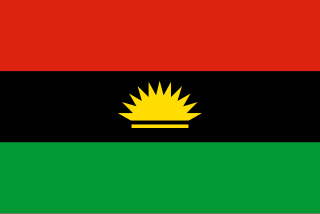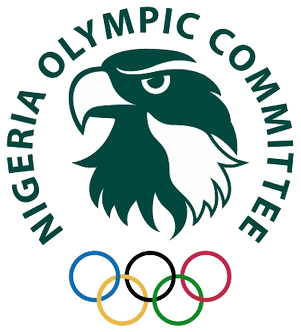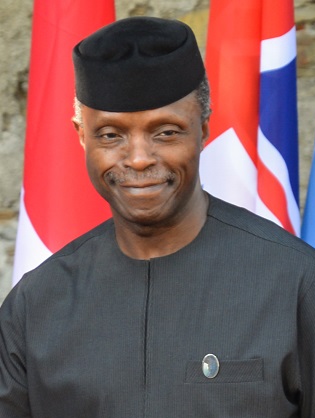Related Research Articles

Nigeria, officially the Federal Republic of Nigeria, is a country in West Africa. It is situated between the Sahel to the north and the Gulf of Guinea to the south in the Atlantic Ocean. It covers an area of 923,769 square kilometres (356,669 sq mi). With a population of more than 230 million, it is the most populous country in Africa, and the world's sixth-most populous country. Nigeria borders Niger in the north, Chad in the northeast, Cameroon in the east, and Benin in the west. Nigeria is a federal republic comprising 36 states and the Federal Capital Territory, where the capital, Abuja, is located The largest city in Nigeria is Lagos, one of the largest metropolitan areas in the world and the largest in Africa.

Biafra, officially the Republic of Biafra, was a partially recognised state in West Africa that declared independence from Nigeria and existed from 1967 until 1970. Its territory consisted of the former Eastern Region of Nigeria, predominantly inhabited by the Igbo ethnic group. Biafra was established on 30 May 1967 by Igbo military officer and Eastern Region governor C. Odumegwu Ojukwu under his presidency, following a series of ethnic tensions and military coups after Nigerian independence in 1960 that culminated in the 1966 anti-Igbo pogrom. The Nigerian military proceeded in an attempt to reclaim the territory of Biafra, resulting in the start of the Nigerian Civil War. Biafra was officially recognised by Gabon, Haiti, Ivory Coast, Tanzania, and Zambia while receiving de facto recognition and covert military support from France, Portugal, Israel, South Africa and Rhodesia. After nearly three years of war, during which around two million Biafran civilians died, President Ojukwu fled into exile in Ivory Coast as the Nigerian military approached the capital of Biafra. Philip Effiong became the second president of Biafra, and he oversaw the surrender of Biafran forces to Nigeria.

Frederick John Dealtry Lugard, 1st Baron Lugard, known as Sir Frederick Lugard between 1901 and 1928, was a British soldier, mercenary, explorer of Africa and a colonial administrator. He was Governor of Hong Kong (1907–1912), the last Governor of Southern Nigeria Protectorate (1912–1914), the first High Commissioner (1900–1906) and last Governor (1912–1914) of Northern Nigeria Protectorate and the first Governor-General of Nigeria (1914–1919).

Reinhard Bonnke was a German-American Pentecostal evangelist, principally known for his gospel missions throughout Africa. Bonnke had been an evangelist and missionary in Africa since 1967.
The Nigeria national football team represents Nigeria in men's international football. Governed by the Nigeria Football Federation (NFF), they are three-time Africa Cup of Nations (AFCON) winners, with their most recent title in 2013. In February 2024, the Nigerian national football team was ranked 28th in the FIFA rankings. The team has qualified for six of the last eight FIFA World Cups, missing only the 2006 and 2022 editions. They have reached the round of 16 on three occasions. Their first World Cup appearance was in the 1994 edition. The team is a member of FIFA and Confederation of African Football (CAF).

Ebonyi State is a state in the South-East geopolitical zone of Nigeria, bordered to the north and northeast by Benue State, Enugu State to the west, Cross River State to the east and southeast, and Abia State to the southwest. Named for the Abonyi (Aboine) River—a large part of which is in the state's south—Ebonyi State was formed from parts of Abia and Enugu state in 1996 and has its capital in Abakaliki.

Ibrahim Agboola Gambari, CFR ; born November 24, 1944), is a Nigerian academic and diplomat who served as Chief of Staff to the President of Nigeria from 2020 to 2023.

Goodluck Ebele Azikiwe Jonathan is a Nigerian politician who served as the president of Nigeria from 2010 to 2015. He lost the 2015 presidential election to former military head of state General Muhammadu Buhari and was the first incumbent president in Nigerian history to concede defeat in an election and therefore allow for a peaceful transition of power.

Clemens Westerhof is a Dutch football manager, who has worked in various football positions on the African continent since 1989.

Joseph Nanven Garba was a Nigerian general, diplomat, and politician who served as president of the United Nations General Assembly from 1989 to 1990. He served as federal commissioner for external affairs from 1975 to 1978, commandant of the Nigerian Defence Academy from 1978 to 1979 and commander of the Brigade of Guards from 1968 to 1975.

Hassan Bubacar Jallow is a Gambian judge who has served as Chief Justice of the Gambia since February 2017. He was the Prosecutor of the International Criminal Tribunal for Rwanda (ICTR) from 2003 to 2016, and the Prosecutor of the International Residual Mechanism for Criminal Tribunals (IRMCT) from 2012 to 2016, both at the rank of United Nations Under Secretary-General. He served as Minister of Justice and Attorney General from 1984 to 1994 under President Dawda Jawara.
Mansur Mukhtar is a Nigerian economist who served as Minister of Finance in the cabinet of President Umaru Yar'Adua from 17 December 2008 to March 2010 when acting president Goodluck Jonathan dissolved his cabinet.

The Nigeria Olympic Committee (NOC) is the National Olympic Committee and National Paralympic Committee representing Nigeria, responsible for co-ordinating and supporting Nigerian competitors in the Olympic Games. It is also the body responsible for Nigeria's involvement at the Paralympic Games, Commonwealth Games, Youth Olympic Games and African Games.

The Lead City University of Ibadan, also known as LCU, is a private university located in Ibadan, Oyo State, Nigeria.

The 2013 Africa Cup of Nations Final was a football match that took place on 10 February 2013 to determine the winner of the 2013 Africa Cup of Nations, the football championship of Africa organized by the Confederation of African Football (CAF). The match was held at the FNB Stadium in Johannesburg which also hosted the 1996 Africa Cup of Nations Final and the 2010 FIFA World Cup Final. The tournament's closing ceremony was held just prior to kick-off. The decision was announced in May 2012. The final was contested between Nigeria and Burkina Faso.

Olamide Gbenga Adedeji is a Nigerian rapper, singer, songwriter, and record executive. He is regarded as one of the most influential artists in Africa, he has been pivotal to the creative and commercial success of several Afrobeats music stars, and is consistently praised for his role in elevating street pop to mainstream recognition as a distinct music genre. Olamide additionally made a notable contribution to the Nigerian cruise, genre. He records in Yoruba and English. In 2011, he released his debut studio album Rapsodi while signed to Coded Tunes. YBNL, his follow-up album, was released under his label imprint "Yahoo Boy No Laptop", aka YBNL Nation. The album was supported by the singles "First of All", "Voice of the Street", "Stupid Love", and "Ilefo Illuminati". On 7 November 2013, he released his third studio album Baddest Guy Ever Liveth. The album's singles include "Durosoke" and "Yemi My Lover". On 17 July 2013, Olamide became the first Nigerian to sign an endorsement deal with Cîroc.

Ibrahim Badamasi Babangida University (IBBUL) is a university in Lapai, Niger State, central Nigeria. It had its first convocation in 2014. It was named after the former Nigeria Head of State General Ibrahim Babangida. The university started academic activities in the 2005/2006 academic session.

Oluyemi Oluleke Osinbajo is a Nigerian lawyer, professor, and politician who served as the 14th vice president of Nigeria from 2015 to 2023. A member of the All Progressives Congress (APC), he previously served as Attorney General of Lagos State from 1999 to 2007 and holds the title of Senior Advocate of Nigeria.

Femi Robinson was a Nigerian film and television actor, famous for his lead role in The Village Headmaster, where his stage name, "Ife Araba, The Village Headmaster", was coined. Chief Eddie Ugbomah, former Chairman of the Nigerian Film Corporation, called him "an icon of the industry".

Tijjani Muhammad-Bande is a Nigerian diplomat, academic and political scientist who was the president of the United Nations General Assembly 74th session from 17 September 2019 to 15 September 2020. He previously served as vice president of the 71st session from September 2016 to September 2017. He has served as Nigeria's Permanent Representative to the United Nations since 2017.